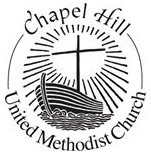Yesterday was May 1. A day simply known as May Day in some quarters or International Workers Day in others. The observance of International Workers Day in the United States began on May 1, 1886, in the midst of the labor movement in response to the growing oppression of the industrial worker in cities around the globe.
IWD came about in response to events in Chicago on May 1, 1886, and the days following in Haymarket Square. On May 1st, what had been a peaceful strike and demonstration in pursuit of an eight-hour workday, turned violent when police officers fired upon a crowd who sought to confront and challenge those who crossed the picket lines. Several striking workers were killed as a result and much of the rest of the crowd was left angry. Many resolved to return a few days later with violence in response to what had occurred. One of the leaders of the movement is said to have insisted that any call to arms and call to violence be removed from the purpose of the rally.
It is said on the side of the labor movement that the call to remove the violent language and purpose from the rally was upheld at Spies’ request. However, when police officers descended upon the rally to break it up, someone threw a bomb into the crowd of officers killing several and leading to a firefight. Different sides give different points of view to the story as to what happened that day. Spies and seven others were convicted of conspiracy for the events that day. Spies was found guilty based on the fact that flyers with the language he is said to have rejected were found in his apartment. Those within the movement would assert they were found there because they were not distributed and that the trial was set against them from the beginning, including jury selection and the behavior of the judge in the trial.
Whatever happened on that day, the American labor movement was off to a difficult start. However, the movement would regroup and through solidarity, including from Methodist ministers such as Harry Ward, the struggle for other labor rights, including the eight-hour workday, would bear fruit. The arc of the universe would bend toward justice.
Ward was the co-founder of the Methodist Federation of Social Service (now Action, MFSA) and co-author of the Social Creed of the Federal Council of Churches (Now National, NCC) and the Methodist Social Creed which still bears some resemblance despite years of revisions. The creed also laid the groundwork for the United Methodist Social Principles that lay out our social commitments as a denomination today.
These events following May 1, 1886, gave a rough start to what claimed to be a peaceful movement. However, over the years it has come to shine a light on the suffering of our neighbors. As Methodists, we have learned through the years how to better advocate for the pursuit of justice as love for our neighbors, what scholar and theologian Cornel West calls love in public. It is true that movements for social justice have lost sight of the need to embrace the love of their neighbor. Indeed liberation theologians give us a pathway to remember this with the assertion that salvation, while including social concerns along with individual needs for salvation, includes salvation for both the oppressor and oppressed.
It is understood that this causes significant discomfort for us to consider today and that there are numerous opinions on these matters within the UMC. Yet we can find balance in our Principles such as in the matter. Our Social Principles endorse the right to collective bargaining and unions while emphasizing the call for both parties to negotiate in good faith and reject the use of violence by either party. United Methodists, given their commitment to love God and love neighbor, their commitment to do good and do no harm, and their commitment to justice as articulated in our Social Principles, can be a vital voice among many from both within and beyond faith communities as we seek social holiness with the love of Christ and, by God’s grace, point the way to the future of God’s shalom.
Grace and peace,
Rev. J.D. Allen

